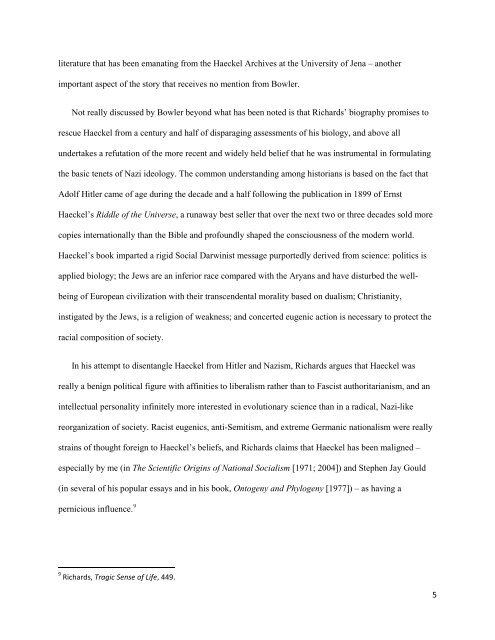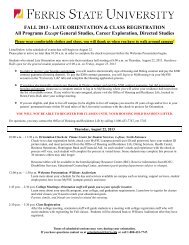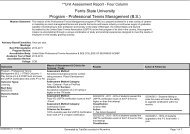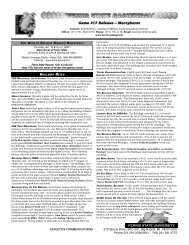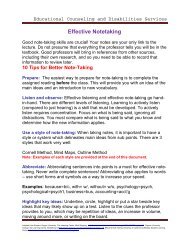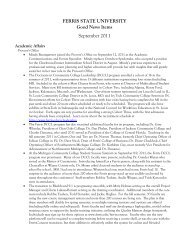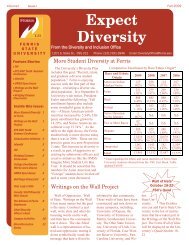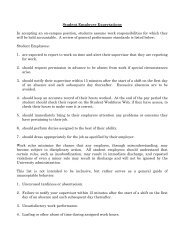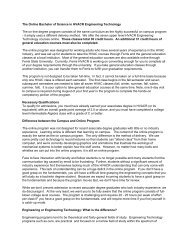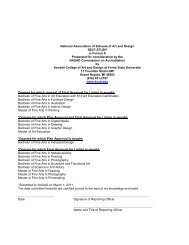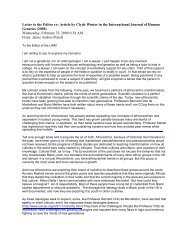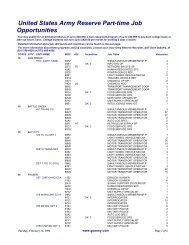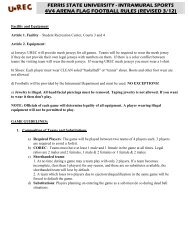Daniel Gasman - Ferris State University
Daniel Gasman - Ferris State University
Daniel Gasman - Ferris State University
Create successful ePaper yourself
Turn your PDF publications into a flip-book with our unique Google optimized e-Paper software.
literature that has been emanating from the Haeckel Archives at the <strong>University</strong> of Jena – another<br />
important aspect of the story that receives no mention from Bowler.<br />
Not really discussed by Bowler beyond what has been noted is that Richards’ biography promises to<br />
rescue Haeckel from a century and half of disparaging assessments of his biology, and above all<br />
undertakes a refutation of the more recent and widely held belief that he was instrumental in formulating<br />
the basic tenets of Nazi ideology. The common understanding among historians is based on the fact that<br />
Adolf Hitler came of age during the decade and a half following the publication in 1899 of Ernst<br />
Haeckel’s Riddle of the Universe, a runaway best seller that over the next two or three decades sold more<br />
copies internationally than the Bible and profoundly shaped the consciousness of the modern world.<br />
Haeckel’s book imparted a rigid Social Darwinist message purportedly derived from science: politics is<br />
applied biology; the Jews are an inferior race compared with the Aryans and have disturbed the well-<br />
being of European civilization with their transcendental morality based on dualism; Christianity,<br />
instigated by the Jews, is a religion of weakness; and concerted eugenic action is necessary to protect the<br />
racial composition of society.<br />
In his attempt to disentangle Haeckel from Hitler and Nazism, Richards argues that Haeckel was<br />
really a benign political figure with affinities to liberalism rather than to Fascist authoritarianism, and an<br />
intellectual personality infinitely more interested in evolutionary science than in a radical, Nazi-like<br />
reorganization of society. Racist eugenics, anti-Semitism, and extreme Germanic nationalism were really<br />
strains of thought foreign to Haeckel’s beliefs, and Richards claims that Haeckel has been maligned –<br />
especially by me (in The Scientific Origins of National Socialism [1971; 2004]) and Stephen Jay Gould<br />
(in several of his popular essays and in his book, Ontogeny and Phylogeny [1977]) – as having a<br />
pernicious influence. 9<br />
9 Richards, Tragic Sense of Life, 449.<br />
5


